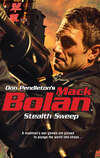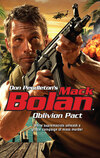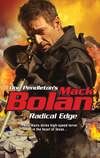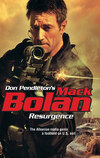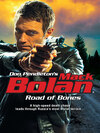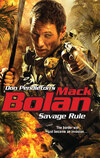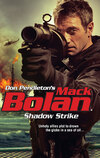Kitabı oku: «Stealth Sweep», sayfa 3
CHAPTER THREE
Engels Air Force Base, Russia
The abandoned freight yard, high on a hill overlooking the air base, was overgrown with weeds and brambles. The small brick building that had once served as an office was almost buried from sight under multiple layers of ivy.
The steel railroad tracks were long gone, and the wooden ties crumbled back into the earth. Only random pieces of rusting machinery lay about on the cracked asphalt, along with unrecognizable piles of trash and windblown leaves. Once, there had been thousands of cargo containers waiting patiently to be shipped across Russia. Stacked on top of one another, the containers had formed cubist mountains that rose defiantly to challenge the Ural Mountains on the horizon. But now there was only a handful of the big steel boxes, most of them rusted through in places to become homes for rats and other small vermin.
Artistically surrounded by a dozen other corroded containers, one steel box was heavily streaked with rust and bird droppings, but still in good shape, and unbreeched. Lying in the nearby weeds were the gleaming white bones of an itinerant worker, what the Americans would have called a hobo. Still clenched in her right hand was an iron crowbar whose sharp tip perfectly matched a set of gouges in the surface of the unopened box. Four years ago, the woman had climbed the wire fence and attempted to break open the container, hoping it was full of stereos, or cell phones, or anything that could be sold on the black market for a fast ruble.
She’d labored for hours to pry open the access panel, and her reward had been a searing burst of pain as 20,000 volts of electricity surged through her body, making her blood boil, her kidneys shrivel, her teeth shatter, then her cooked brain quite literally explode.
The rats and black beetles had feasted well that autumn, but soon the bounty of flesh was gone and only the bones remained, along with a few scraps of cloth, and the relatively undamaged crowbar.
Suddenly, the steel box began to softly vibrate, the dried bird nests and loose scales of rust dancing along the top until tumbling over the ends. With a hard clang an internal lock disengaged, and the lid swung aside just as a dozen spheres blasted upward on a column of compressed air.
Spreading their wings, the drones swooped from the sky, skimming low across the weedy fields of rubbish to fly straight off the end of a limestone cliff. Diving sharply to build speed, the war machines streaked straight down toward the sprawling air base that filled the valley below.
The leaves on the trees shook from the wake of the Sky Tiger drones as they flashed past a radar station and a SAM battery. Spreading out in a curve, the drones separated and began pumping out their deadly cargo of sarin nerve gas.
Coming out of the control tower, a pair of airmen were the first to die, their faces barely able to register the fact before their bodies dropped, twitching, to the tarmac, and then went still forever. A guard in a kiosk set alongside the main hangar saw the drone and reached for the red security phone on the wall, but his hand never finished the short journey before he was sprawled across his desk, red blood pouring from every orifice.
Getting ready for the morning reconnaissance patrol along the Chinese border, the two pilots strapped into the cockpit of their MiG-35 jet fighters actually saw the drones flash by, and managed to get out a warning over their throat mikes before the sarin gas penetrated the seals of their planes. As their vision began to fade, the pilots frantically turned up the flow of oxygen to their masks. That bought them a few precious seconds of nearly unbearable agony, then they slumped over in their seats, convulsing and gushing red life.
Accidentally, one of the spasming men shoved the control yoke forward, and the idling jet engines instantly surged, revving to full power. With nobody at the controls, the MiG-35 started to drift and narrowly missed crashing into an Mi-26 cargo helicopter full of dying paratroopers. Then the MiG ran over a bleeding flight controller sprawled on the ground, and swerved wildly around to clip an attack helicopter and crash directly into a Tu-160 strategic bomber.
Since the MiG wasn’t in the air, the air-to-air missiles lining both wings weren’t armed, nor were the thermonuclear bombs loaded into the Tu-160. But that made little difference to the maintenance truck carrying a full load of high-octane jet fuel.
The fiery blast engulfed a dozen other war planes, quickly setting their own stores of fuel ablaze, then cooking off the warheads in their assorted rockets and missiles. With nobody alive to stop it, this quickly became a chain reaction of explosions that rapidly escalated into a rampaging cacophony of destruction, shattering windows for a thousand yards, buckling the control tower and even flipping over the cars in the distant parking lot. The heavily armored thermonuclear bombs inside the belly of the Tu-160 were completely undamaged in the maelstrom, as were the underground SAM batteries. But a split second later, the thermobaric bomb inside the Tu-160 ignited.
Designed as it was to explode in the sky above an enemy target and utterly obliterate it, the device’s titanic detonation shook the entire base, shattering the pavement back into gravel and burning every trace of the deadly sarin nerve gas from existence. Unstoppable, the hellish shock wave of the Russian superbomb careened along the ground, brushing aside planes, trucks, men and machines as if they were dried leaves. Then the heat flash expanded in a staggering halo effect that set fire to everything organic: corpses, tires, trees, boots, roofing tiles and the drones.
Slowly, a rumbling mushroom cloud of smoke and flame formed above the annihilated air base, and charred pieces of corpses and partially melted chunks of billion-ruble jet fighters rained down across the countryside for miles….
Southern Hong Kong
LEAVING THE PUBLIC TRAM at the downtown station, Bolan walked outside the terminus into organized chaos.
The Kowloon District of Hong Kong was unlike anyplace else in the world. A wild mixture of old and new gleaming skyscrapers rose above wooden shacks, rickshaws racing alongside hybrid limousines. Diesel buses fumed alongside electric streetcars, and trucks of every description rumbled past, carrying the goods of the world. Bicycles didn’t flow in streams, but moved in flocks like birds on the wing, and the constant chiming of their little bells was only a background murmur to the orchestra of voices talking, laughing, singing, crying, arguing, pondering, lying, cutting deals or just chattering away.
A hundred vendors were selling everything imaginable from small stalls lining the sidewalks. If the Chinese government deemed something legal to sell, then it was available in Kowloon, usually at a discount price if you bought six of them.
A hand fleetingly touched his hip, and Bolan savagely slapped it away. With a startled cry, the pickpocket moved off fast, cradling his broken wrist.
If there were any traffic laws, nobody was paying attention to them, and Bolan simply crossed through the busy traffic like everybody else, wherever he pleased, the traffic lights seeming to be merely decorations.
Since Hong Kong had once been a British colony, the street signs were also in English, and Bolan easily located the waterfront, although he heard the warning blasts from the tugboats long before he actually saw water.
The crowds were thinner here, and scurried to keep out of the way of the rattling forklifts that wheeled about in conga lines ferrying about an endless array of cargo pallets. The voices were far more impatient, and the use of vulgarity infinitely more prevalent.
Leaning on an iron railing that had been recently painted, Bolan looked across the choppy bay. Since Kowloon faced south, and Mainland China was on the other side of the island to the north, there was only open water to the horizon. In the murky distance was another landmass, oddly named Hong Kong Island. How the inhabitants kept the two islands separate was a puzzle to most outsiders, and a constant source of amusement to the locals.
Though the harbor was choppy, with low swells cresting on the rocky shoreline, the waterway was full of sleek pleasure craft, old fishing trawlers, junks, wooden rafts, futuristic hovercraft and colossal cruise liners that resembled floating islands of light.
There were also a scattering of Chinese navy gunboats, their radar constantly in motion, the deck guns and depth-charge launchers covered with tarpaulins as protection against the salty spray, and the idle curiosity of the much-prized tourists. But the armed sailors on deck were openly carrying 5.56 mm QBZ assault rifles, and stared suspiciously at everybody and everything. Even the tourists. Most of them laughed and took pictures with their cell phones, but the wiser heads turned away and went about their business. China valued tourism, but only to a point.
Keeping to the shadows, Bolan watched the gunboats move along on patrol, blazingly bright halogen searchlights sweeping across every small craft that approached. He grunted at that. These were the new Wall of China, Communist hard-liners more resolute than stone, grim men who couldn’t be bribed, or dealt with.
Turning away from the water, Bolan headed back into the maelstrom of chatting people. It had been a while since he had last been here, but the memories came flooding back, and he soon located the Tsai Shoe Repair Shop. The brass sign above the front door was small, almost unreadable, and the windows were in desperate need of a good washing. Yet Bolan knew that the place was one of the most profitable enterprises on the entire island.
The public side of Tsai Shoe Repair was strictly legitimate, with eager cobblers fixing worn-out soles, replacing broken heels and polishing leather to a mirror sheen. New shoes were available for purchase, as well as a foot massage. However, unlike most shoe repair shops, the business occupied the entire five-story building, including the garage next door.
The set-up was simple. A customer walked in for a repair, or maybe just a shine, and had a few minutes to kill with nothing to do except watch television in the waiting room or read magazines. But if he wished a beautiful young hostess would happily escort him upstairs to a wonderland of fleshly delights. The Tsia Shoe Repair was the premiere brothel of Hong Kong, and unlike so many other brothels, the customers here always left with whatever possessions they had originally arrived with.
Walking into the garage, Bolan used the employee entrance to bypass the shoe shop and go directly into the waiting room. As expected, it was empty. The brothel made no money from a full sofa, only full beds.
At the back of the room was an unmarked door that opened onto a short flight of stairs that led straight to the second floor. Halfway there, Bolan passed a burned-out light fixture, and smiled for the hidden video camera. The soldier reached the top step, and as he pushed open the door, a tiny woman rushed forward to grab him around the waist.
“Colonel!” Madame Tsai said into his stomach, tightening her grasp. “My God, I never thought I’d see you again!”
“Nice to see you, Pat,” Bolan replied, prying her loose to kiss the woman on the forehead.
The owner, manager and madam of the brothel, Tsai Adina, was extremely small. She barely reached five feet, and cultivated an explosion of red curls to give her an extra few inches. Add spike high heels and she just managed to reach about five feet five. Bolan guessed that she weighed somewhere around ninety-nine pounds, but every ounce was in exactly the right place and proudly on display in a skintight bodysuit that revealed every curve. The front was cut low to show off her cleavage, along with some sort of tattoo on her right breast.
Although surrounded by a cloud of jasmine perfume, Tsai used very little makeup. She wore a slim holster at her side. The madam liked to run a peaceful business, but if there was trouble with an unruly guest, she served as the bouncer and easily convinced most people to leave with the swift application of a French police baton. The handle was only seven inches long, barely visible in a closed fist. But with a snap, it extended to twenty-seven inches of coiled steel, and proved more than sufficient to convince even a meth freak that it was time to go home. As small as she was, nobody sane ever tangled with Tsai Adina twice and lived to tell the tale.
“How are things?” Bolan asked.
“Never better.” Tsai smiled, going on tiptoes to kiss him on the cheek.
Although Bolan had been acquainted with the woman for years, she knew him only by his various alias’s. His name changed from time to time, but she was smart enough to never ask embarrassing questions. Keeping secrets was part of her stock-in-trade.
“Got someplace where we can talk in private?” he asked.
“Trouble, John?” Tsai asked in real concern. Her face was only inches away, her eyes a deep blue, almost turquoise.
“Not for you,” he replied honestly, “and you can call me Matt Cooper.”
She looked at him hard for a few moments, then nodded. “Follow me.” She escorted him into a second waiting room.
This one was much more impressive than the one downstairs, and a lot more populated. There were several red leather couches full of men, and a few women, with everybody politely trying to not look at one another. The carpeting was thick to help mask any noise from the polishing machines downstairs.
Instrumental music played softly over disguised speakers, and the oak panel walls were heavily decorated with pictures of the female staff members in various stages of undress, along with numerous shots of celebutantes in bikinis, or less, removed from magazines.
Pushing her way through a beaded curtain, Tsai walked along a dimly lit hallway, her high heels clicking with every step. The passageway was lined with closed doors from behind which came the expected cries, moans and groans of adults indulging in the most basic of recreational activities.
Turning left, the woman proceeded through a small room filled with the night shift. Most of the prostitutes were eating dinner or working on laptops. The rest of the women were touching up their lipstick or brushing their hair.
Bolan followed Tsai into an elevator and she pressed a button for the fifth floor.
With a ping the elevator opened, revealing a big sign in the hallway that stated there was a hundred dollar fine for loud talking. More doors lined this corridor, but these were different from the working rooms downstairs. These doors had locks and peepholes.
“How many on staff these days?” Bolan asked, looking down the long corridor.
“Thirty,” Tsai replied, pulling a key out of her cleavage and unlocking a door. “Well, twenty-nine, actually. My roommate, Lu-Ann, is out with the flu.”
“The nine-month flu?”
“No, just the plain flu.” Tsai laughed and she opened the door. “Sneezing and sniffling and such.”
“Send her my best.” Stepping inside, Bolan relaxed his stance slightly when he saw the room was empty. Bookcases full of paperbacks and CD jewel cases lined the walls, and off to the side, a big-screen TV was set before a curved sofa. The screen was dark, but the DVR underneath steadily counted down as if recording something unseen. There were two beds, at opposite ends of the room, and an open door showed a small bathroom decorated with light blue tiles.
“Welcome to the inner sanctum,” Tsai said, closing the door and locking it. “No customers allowed.”
“Just friends?”
“Just friends, and damn few of those.”
“I’m honored.”
Although quite small, the room was very clean, and clearly not designed to entertain clients. There was an easy chair by the window, and a laptop was humming. In the corner was a dresser piled high with folded laundry.
“Okay, who’s trying to kill you?” Tsai asked, going to the liquor cabinet and starting to make drinks.
“Best not to ask,” Bolan stated, sliding of his jacket. “None for me, thanks.”
“No?”
“Working.”
Glancing in a mirror, Tsai arched an eyebrow at the weapons on display, but said nothing.
“I need some guns.”
“More than those?” the madam asked.
“Better ones, if possible.”
“Well, I have a fairly decent armory in the office,” she said, thoughtfully biting a lip. “But I know where you can get more. Military stuff, right?”
“Right.”
“Yeah, thought so. Well, the Tong hasn’t given me any problems for years, but I like to stay prepared.”
“Very wise.”
“I’ll send a girl to bring a map.”
“Thanks.”
“Anything else?”
“A boat, small, fast, disposable.”
Turning to the left, Tsai saw the electric glow of China in the far distance and opened her mouth to speak, then changed her mind.
“When do you want it?” she asked softly.
“As soon as possible.”
“Then I had better get moving.”
CHAPTER FOUR
Yangtze River Valley, Red China
“No! Please!” Colonel Weng Pei pleaded. “I had to act. Choi Lei at the CIA station said that a specialist was coming from America to deal with something big. He had to be eliminated.”
“Shut up,” Major Shen-wa Fen muttered, slashing his knife along the man’s throat.
As a torrent of hot blood gushed forth, the major pushed his gurgling commander out of the hovering Z-8 transport helicopter.
“You contemptible fool,” Shen-wa said in annoyance, cleaning the blade on a rag as he watched the hurtling body vanish into the thick forest below. “Who told him to move on the intel provided by our insider and lay a trap for the CIA agent? I want the Americans stonewalled, learning nothing as they rush about Hong Kong from one false lead to another until they meet the Lucky Lady!”
“Mice in a maze,” Sergeant Ming Bohai rumbled from the cockpit, angling the military helicopter away from the rolling forest and back toward home base.
Sheathing the blade, Shen-wa nodded. “Exactly! But now…”
Annoyed, he looked out the window, lost in his private thoughts. Was the plan compromised? He didn’t think so, which was lucky, because at this point it would be nearly impossible to stop. After five long years of planning, everything was dovetailing into place, and he wouldn’t allow anything to get in his way. Certainly not some hot-snot nephew of a politician, a fat fool who had never fired a weapon in combat, and earned his rank by throwing elaborate parties and kissing ass.
No wonder the world hates China, Shen-wa noted, leaning back in the jump seat. We’re a joke. As corrupt as the Americans and as decadent as the Russians.
Pulling a small ironwood pipe from the breast pocket of his uniform, Shen-wa tucked it contentedly into his mouth. Sadly, he couldn’t light the pipe, as smoking was strictly forbidden on board the helicopter. Something about the smoke bothering the advanced electronics. Still, having the stem between his teeth gave him no small measure of comfort, and it was an aid to clear thinking. How had a CIA agent been dispatched to Hong Kong so fast? What did the spy agency know?
Unlike most of the executive operatives in Red Star, the major was a tall, handsome man with perfectly combed hair, and the smile of a Beijing movie star. He always spoke softly, rarely above a whisper, yet combat veterans jumped as if he were cracking a whip. Nobody in the Central Military Command really understood how the major achieved the effect, not even the president, and every attempt to duplicate it had failed miserably. The aura of command radiating from Shen-wa was a natural talent, and had caused quite a lot of resentment in the regular army. His transfer from counterintelligence into the covert division of the Red Star had been as expected as rain in the spring—normal, natural and to everyone’s benefit.
“Sir, can the damage be repaired?” Ming asked, swinging away from the new high-tension powerline towers jutting up from the forest like the skeleton hands of dead robots.
“Most certainly, old friend,” Shen-wa replied, smiling around the pipe. “We’re fine. For the moment, at least. Your prompt action in telling me about this saved us all. It has helped save China itself.”
“Just doing my job, sir,” Ming demurred, leveling the helicopter so as not to draw unwanted attention from the workers below.
Childhood hadn’t been kind to the sergeant in many ways. It gave him a face from hell, and had started him on the twisted path to his present employment. Unusual for a race known for its rather compact stature, Ming was a hulking giant, well over seven feet tall and with shoulders as broad as a Tibetan ox. His fingers were so large he had to remove the trigger guard from his service pistol to operate the weapon, yet he flew helicopters with smooth precision.
“We’re all just doing our jobs,” Shen-wa said, lost in thought. The CIA…the CIA…why did that keep echoing in his mind?
Lost in contemplation, he made no further comments as the sergeant expertly piloted the helicopter over the small town of Sandooping, and then proceed up the river toward the gigantic Three Gorges Dam.
Finished only a few years earlier, the Three Gorges facility was the largest dam in the world, with twenty-seven hydroelectric generators fully capable of supplying power to half of China. Once, he had read the exact figures of how much voltage it generated, but then promptly forgot the number. He wasn’t overly interested in statistics, only results. The dam had cost thirteen billion euros to build, and so it had been relatively easy for him to siphon off a decent chunk of the funds for Project Keyhome.
The Three Gorges Dam was so huge that it had a series of locks alongside, elevators for cargo ships, and could lift entire oceangoing vessels from the lower runoff located at the bottom, to the vast lake on top. No other dam in the world could do that, and the fact was a constant source of pride for the major. The Chinese had always been creators, inventing black powder, rockets, the compass, and a host of other items that made modern life possible.
And soon they would bring freedom to every civilized nation on the planet, Shen-wa added mentally. Whether they wanted it or not. But first China had to clean its own house.
Receiving clearance from the air traffic controller inside the control tower atop the massive dam, the sergeant landed the helicopter directly on one of three circles set aside for emergency transport.
Even before the sergeant had shut down the complex machine, Major Shen-wa had exited the helicopter and walked far enough away that he could light his pipe.
“Orders, sir?” Ming asked, bending low as he walked under the slowing blades.
“You better go and report the terrible accident to your political officer, Sergeant,” Shen-wa directed. “Now remind me again, the colonel was drunk, as usual, and fell off the helicopter….” He paused expectantly.
“A hundred miles to the north, near the abandoned missile base?”
“No, better make it the south, near the rock quarry. That will be much harder to search.”
“Yes, sir. A hundred miles to the south, near the old rock quarry,” Ming replied, managing to look contrite. “We tried to land to see if there was anything we could do, but the terrain in the area made it impossible.”
“And we didn’t radio in immediately for help because…”
“We couldn’t! The colonel had ordered a halo of full radio silence around the dam.”
Removing the pipe, Shen-wa smiled. “Exactly. Such a shame.”
“Sir, what if they don’t believe me?”
“Then kill them all and throw the bodies into the gorge. In fact—” he gave a hard smile “—do it anyway. It’s time that we took over this facility. I’m tired of listening to these cowardly paper-jugglers.”
“Yes, sir!” Ming replied eagerly, giving a fast salute.
Shen-wa almost smiled at that, then it hit him. Less than thirty-six hours had passed since the attack on Kazakhstan. There was no way the CIA could have dispatched an agent to China in so short a time period. The colonel knew the bureaucracy of the Agency was horrendous. Whomever Colonel Weng had tried to capture was merely somebody pretending to be a CIA agent. That was the only logical answer.
Exhaling a long stream of smoke, Shen-wa grunted. The old bastard may have done the project a good deed, accidentally uncovering an unknown enemy before he could get close.
“Something wrong, sir?” Ming asked in concern.
“Yes and no,” Shen-wa replied, removing the pipe. “After you terminate everybody in the political office, go to Hong Kong and find out who it was that entered the island. He isn’t a CIA agent, and we need to know who this man actually works for.”
“Perhaps the American…ah…NAS?”
“NSA,” Shen-wa corrected. “But no, they are code breakers. More paper-pushers. This was the act of somebody with blood in their veins. A professional. A killer.”
“Perhaps the Mossad.”
“Yes, that could very well be,” Shen-wa answered slowly. “The Israelis are very good at what they do, almost as good as us!” He chuckled, and the sergeant joined in for the sake of solidarity.
“Find this man,” Shen-wa said. “Question him thoroughly. Then poorly hide the body, and blame it on the Russians.”
“What if he is Russian, sir?”
“Blame it on them anyway. Who can keep track of their internal politics, eh?”
“Sir, yes, sir!” Ming replied with a crisp salute.
Puffing on his pipe, Major Shen-wa watched as the sergeant strode away, loosening the massive .50-caliber Norinco pistol holstered at his side. Just for a fleeting moment, Shen-wa almost felt sorry for the poor bastard, but then it was gone, a random thought lost on the breeze.
Leaving the small heliport, Shen-wa walked to an iron door and waved his identification card before the scanner. There came a subtle hum, and the door unlocked, then cycled open to the sound of working hydraulics.
Stepping inside, the major walked past a huge soundproof room full of technicians busily operating the complex controls of the gargantuan power station. A pretty woman at one of the consoles smiled at him in passing, and Shen-wa politely touched his cap in reply. Lieutenant Lee Jade was a distant cousin, and he had gotten her the job in case he needed some insider information about the daily operations of the dam. So far, he hadn’t, but it was nice having family nearby, anyway. After all, family was why he was trying to help China conquer the world.
Reaching a private elevator, Shen-wa showed his identification card to the wall scanner once more, then pressed his hand on a glowing sensor plate. There came a slight tingle as the plate sent a few volts of electricity through his fingers to make sure the hand was still alive, and not detached by an enemy spy in order to facilitate entry. This was another Chinese invention, although he had heard rumors that the West had also created a similar device, for the exact same reasons.
It was a very long ride down to the bottom level, and Shen-wa emerged from the elevator in a cloud of tobacco smoke. Tapping out the glowing ashes into a trash container, he then slowly walked toward a sandbag nest with two soldiers stationed behind the waist-high barrier. They looked strong and fit, even though one was clearly much older than the other. Both men were in full dress uniform, heavily armed and wearing class four body armor. Field soldiers got class two armor, and special forces wore class three. Class four was much too heavy to wear in combat, but the bulky armor was perfect for soldiers who could sit down and rest for most of the day.
“Major!” a young private called out crisply, snapping a strange weapon to his chest in lieu of saluting. The barrel of the weapon was ridiculously large, the ammunition clip even bigger, and there was a bandoleer of 35 mm shells draped across his chest, with two more tucked into loops at his side where he normally would have had a sidearm.
“So, it finally arrived,” Shen-wa said softly, looking over the QLB 35 mm grenade launcher. “Yes, Major!”
“And you passed the mandatory testing?”
“Of course, Major!” the young private stated proudly. “I can fire the QLB in my sleep, and repair it in the dark!”
Hefting his own QBZ assault rifle, the older private grunted in acknowledgment. “He actually can, Major. I’ve seen him at the gun range. Fast. Faster even than Sergeant Ming.”
“Show me,” Shen-wa commanded, pointing down the corridor. “Destroy that light, third from the end.”
In a blur of motion, the young private crouched as he swung up the oversize weapon and fired. Hot smoke and flame belched from the muzzle, and a hundred feet away a light fixture exploded into debris, leaving a fist-size dent in the steel wall.
“Why nonexplosive rounds?” Shen-wa asked sternly.
“Only the first two are solid,” the young private replied crisply. “The next three release hundreds of razor-sharp fléchette rounds. The last shell in the clip is high-explosive, armor piercing.” He grinned. “In case an invader is also wearing body armor.”
“Very wise. Carry on,” Shen-wa said, walking around a corner. Just a few words now and then, a touch of courtesy, and the troops would die for him. It was a good investment.
An iron gate closed off this section of the corridor, and the major again pressed his hand to a sensor plate. The gate unlocked with a clang, and he went through, closing it tight behind. Electronics were all well and good, but he would always put his real trust in simple cold steel.
An unmarked door was at the end of a short corridor, and sitting at a plain wooden desk nearby was a mature woman in a long civilian dress, the flowing black fabric decorated with colorful flowers. A plate on the desktop had her name in both Mandarin and Cantonese. She was industriously typing away on a computer keyboard, and looked up at his approach.
